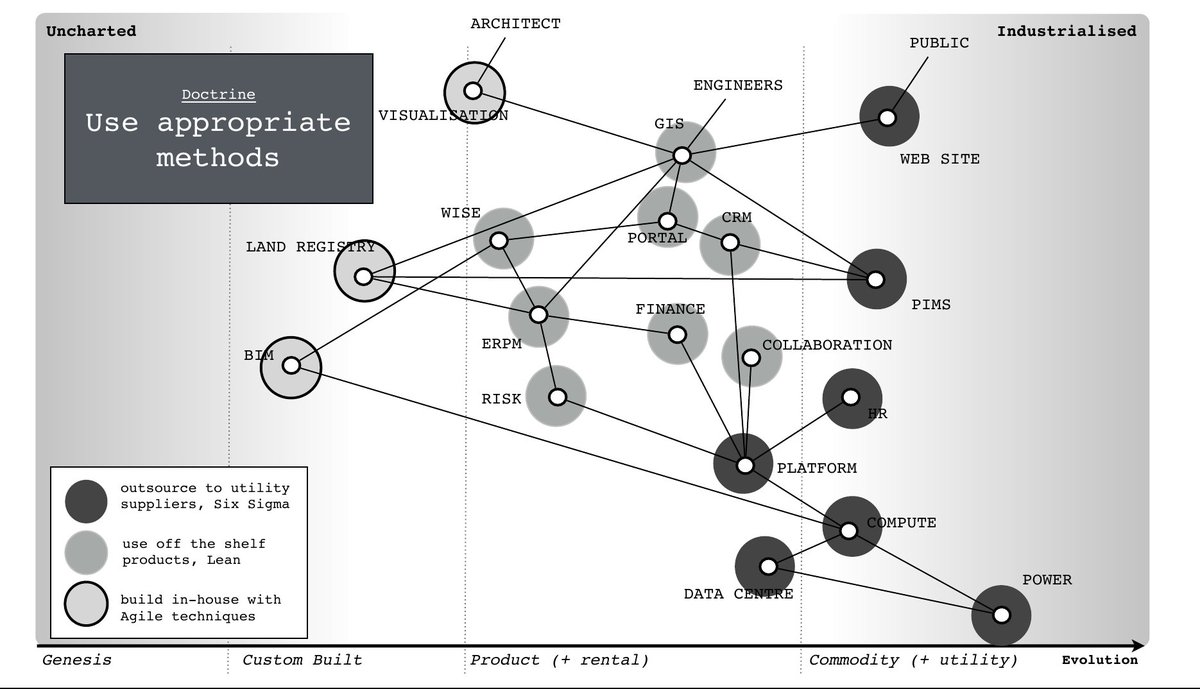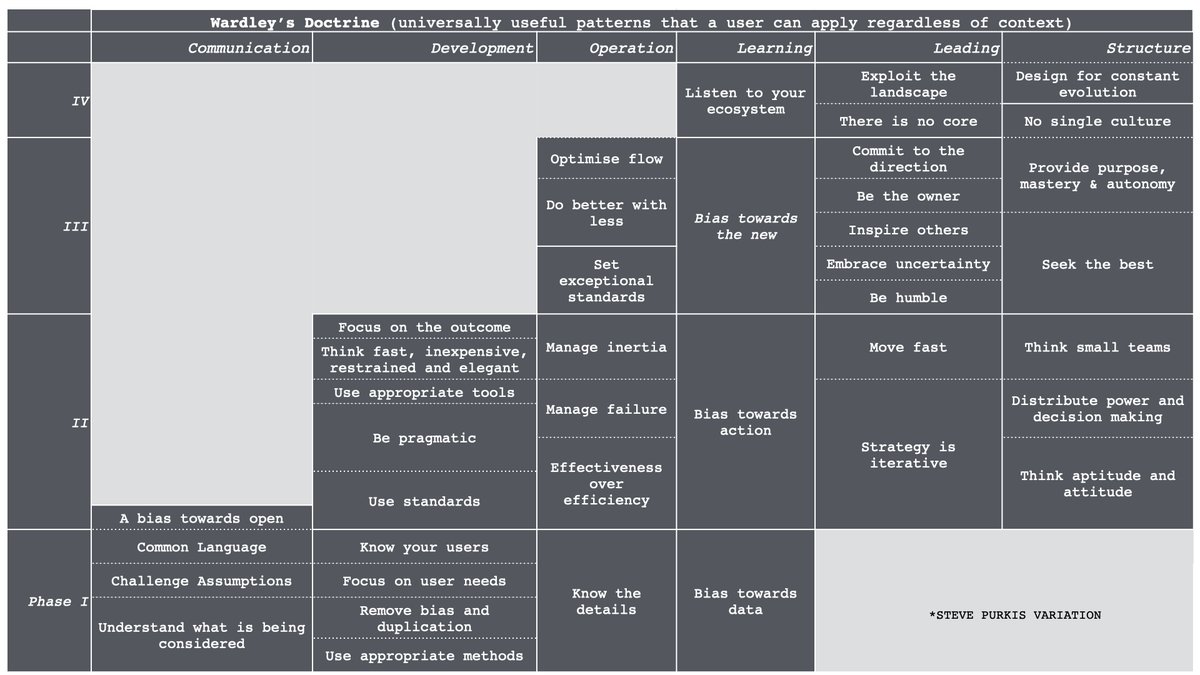
X : Do you have definitions for that doctrine table?
Me : Sure.
Common language : Make sure that everyone who is discussing the issue uses a language that is common to all.
Challenge Assumptions : Take assumptions and challenge them.
... are you serious?
Me : Sure.
Common language : Make sure that everyone who is discussing the issue uses a language that is common to all.
Challenge Assumptions : Take assumptions and challenge them.
... are you serious?

Doctrine is a list of universally useful patterns from mapping. Their application requires thought. This is not a checklist tickbox exercise. So, no ... I don't provide a definition and that's deliberate. I want you to think not blindly follow.
X : So what about "focus on user needs".
Me : What about it? I want you to think about user needs.
X : But how do I distinguish between needs and wants?
Me : I win ... to ask that question means you must now be thinking about user needs.
Me : What about it? I want you to think about user needs.
X : But how do I distinguish between needs and wants?
Me : I win ... to ask that question means you must now be thinking about user needs.
X : I think I get. Mapping is all about engaging brain, it's not about answers.
Me : It's all about freedom from those consultants that enslave us. That requires people to engage brain and just not follow the answers they are spoon feed.
Me : It's all about freedom from those consultants that enslave us. That requires people to engage brain and just not follow the answers they are spoon feed.
... doctrine is not a "maturity model" for organisations. Yes, I use it when looking at competitors because it gives me a sense of what games I can play against them. Yes, it has phases because the components are built on each other ... 

... but doctrine is more a "how much do we think about stuff" model and most organisation don't think a great deal about stuff. Checklists don't help, they don't encourage you to think. 

X : How do you know your doctrine is right?
Me : It's not right. It inherits from its parent - mapping - which means it is imperfect and wrong. The question is whether it's useful. This is my list of patterns that I've found to be universally useful not universally right.
Me : It's not right. It inherits from its parent - mapping - which means it is imperfect and wrong. The question is whether it's useful. This is my list of patterns that I've found to be universally useful not universally right.
• • •
Missing some Tweet in this thread? You can try to
force a refresh








